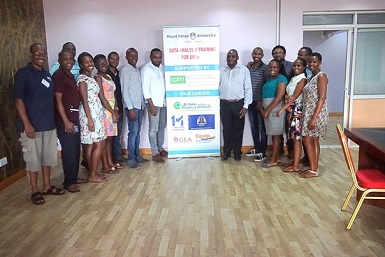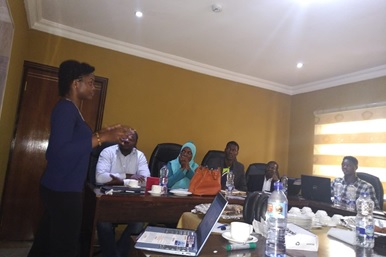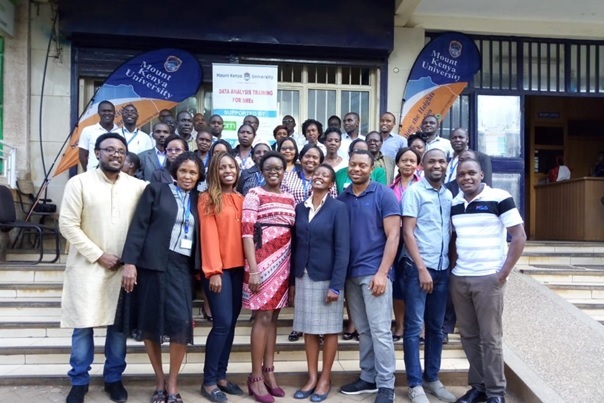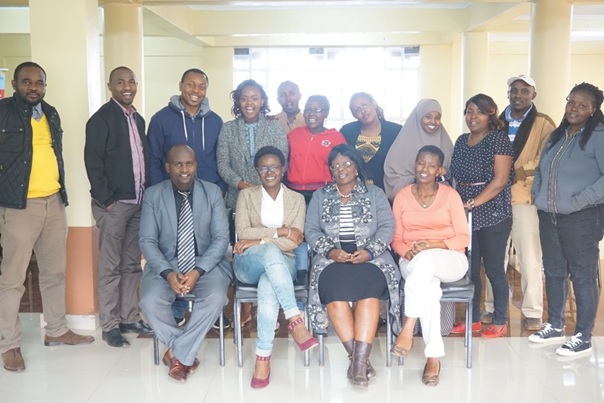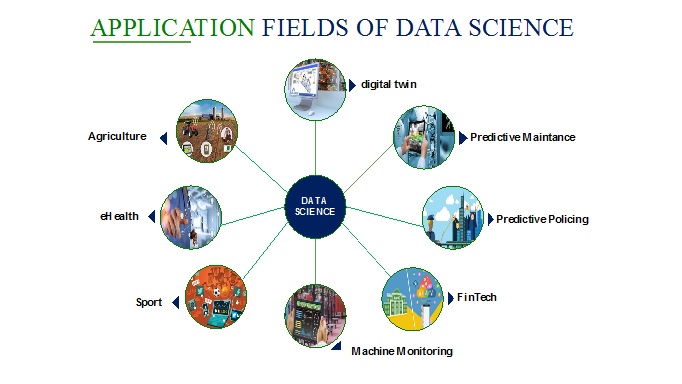This workshop aims to create an awareness about data science among SMEs in Kenya. It also endeavours to equip the entrepreneur with practical skills and tools to help develop data driven business models to build their organizations.
This program is designed for SME Managers and Business Owners interested in discovering and using Data Analytics knowledge to scale up their business models. If you have an understanding of the business process, or you carry out business intelligence and reporting for your company or you deal with numbers, then you’re the right fit for this workshop. The goal is to get you up to speed as quickly as possible on Data Science Technology without sacrificing any of the essentials.
By the end of the workshop, Participants should expect to:
- Have a deeper understanding of data science methods and familiarity of appropriate tools.
- Through analytics, gain the ability to evaluate business data in order to make informed decisions.
- Gain practical and applied knowledge of the core material through applications drawn from business
- Gain insights about how data science and analytics can be applied in business and how to monetize collected data.
Ongoing and Upcoming Projects
Concentration Risk in Peer-to-Peer Lending
After the global financial crisis in 2007, we observed a boom in non-banking institutions proposing financial services as an alternative to the greedy and ailing banking system. The main idea of their business approach is to propose platforms (mostly online), which put borrowers and lenders in direct contact.
>>>More about Concentration Risk in Peer-to-Peer Lending
Automatic Address Data Cleansing
Data Cleansing is gaining importance in data oriented research, i.e. social media analysis, or in an applied area like fraud detection, since mining related data requires merging data from different sources. That is, retrieve information on the same individuals from data that is written differently.
>>>More about Automatic Address Data Cleansing
Mining Social Media and News Paper to Assess Sociopolitical Risk in West Africa
Several conflicts are ongoing in West Africa after long process of sociopolitical tensions. Those conflicts shrink the economic growth and discourage potential investors from creating businesses in the region, including countries where conflicts have not yet occurred. This leads then to an increase of poverty and therefore an additional increase of the conflict potential.
>>>More about Mining Social Media and News Paper to Assess Sociopolitical Risk in West Africa
Analyzing Poverty Using Mobile Phone Data
µDAI is one of the 300 research institutes selected to model mobile phone data for this year's Orange's Data for Development contest in Senegal. Our proposal describes an innovative approach to assess poverty using information from mobile phone usage. We propose a mixed model approach with unobserved factors to model the clustered time series of mobile phones information condition on social-geographical poverty indicators.
